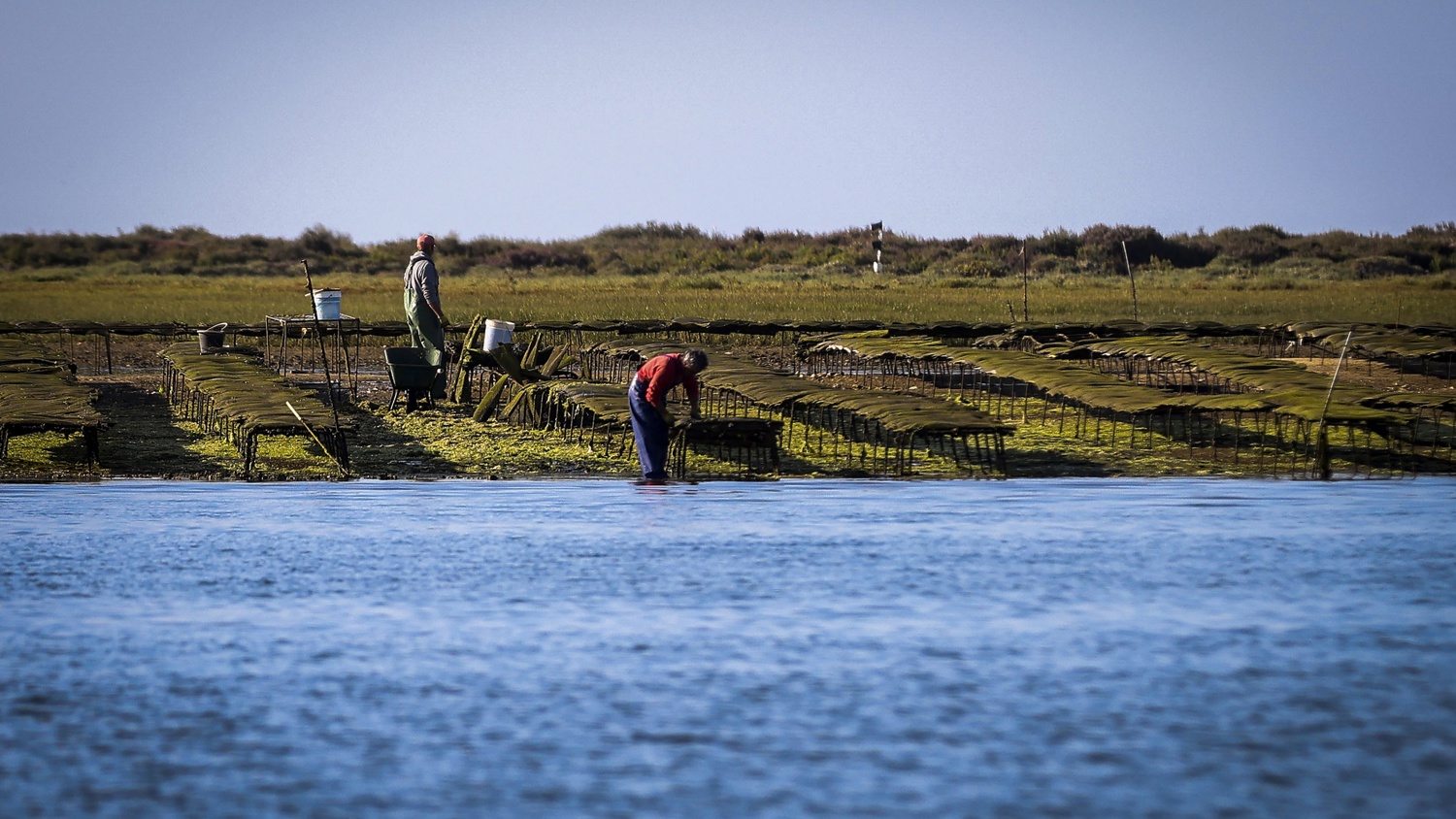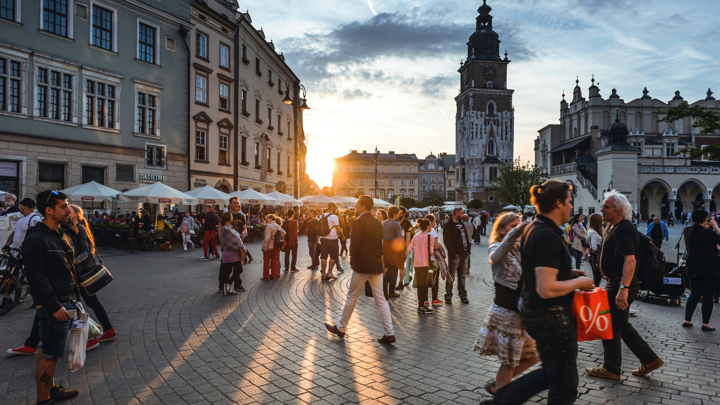
Hands in the water, eyes on the future
Circularity from tradition
In the coastal communities of southern Portugal, tradition and innovation coexist in quiet but powerful ways. On Culatra Island, in the heart of the Ria Formosa, older generations of fishers have long practised circular habits - repairing what’s broken, reusing what’s available, and respecting the rhythm of the sea. For them, circularity was never a concept; it was a common sense, born out of scarcity and shaped by experience.
'Both offshore and at home, we reuse materials to reduce costs', says Sílvia Padinha, president of Culatra’s residents’ association. 'Older generations were always willing to repurpose things. It was part of how we lived.' Today, their children and grandchildren are returning to these same principles, but with a different perspective. Climate change, pollution and biodiversity loss are no longer distant threats - they are daily realities. Rising sea levels reshape coastlines, and plastic invades our oceans. For younger generations, circularity is not just practical, but ethical. It’s a response to a global crisis that necessitates local solutions.
Across Portugal’s Atlantic coast, EU projects like AZA4ICE and SeaLabHaus co-funded by the Interreg Euro-MED and Atlantic Area Programme respectively, are building bridges between different generations and ideas. Providing tools, space and structure for communities to not only adapt to environmental challenges but also know how to manage new solutions. From the reuse of oyster shells as building material to co-design strategies for sustainable tourism, these initiatives show how a circular economy can take root in places where the past is still alive, and the future is being shaped every day.
A new circular mindset
On the Algarve’s shores, discarded fishing nets are reborn as reusable bags for collecting marine litter. In Matosinhos and Figueira da Foz, surfers and architects sketch new coastal landscapes where sport and sustainability meet.
Circularity calls for more than recycling, it demands a mindset shift. From waste to value, from individual action to cooperation. In Portugal, this shift is happening gradually, with both hands in the water.
'We made bags and organised a ceremony with children handing them out to the fishermen to take on their boats,' explains Padinha. 'Now, when they're out at sea, they put the garbage in these bags to be recycled.'
It’s this kind of community-driven creativity that both projects foster. In Culatra, that means applying circularity to aquaculture.
AZA4ICE - Circular Aquaculture
AZA4ICE supports communities in identifying suitable areas for sustainable aquaculture, guided by ecosystem-based planning and co-designed action plans. But on Culatra Island, its impact is deeply personal.
'We’ve supported the use of ground oyster shells as an alternative to gravel to level the floors of our ponds,' says Padinha. 'We also intend to turn the fish and seaweed waste that comes in from the sea into compost.'
The project promotes innovation through the LiRRIEs method (Living Responsible Research and Innovation Ecosystems), encouraging participatory governance and bottom-up change. Circular practices are not only adopted - they’re co-invented by the people who know the sea best.
Local campaigns reflect this spirit of ownership and awareness. One recent slogan reads: 'A ilha é de todos, o lixo também. Traz o teu e o que é de ninguém', which translates into 'The island belongs to everyone, and so does the garbage. Bring your own, and nobody else.'
SeaLabHaus - Rethinking coastal life through creativity
If AZA4ICE focuses on aquaculture, SeaLabHaus focuses on the New BauHaus principles of sustainability, inclusivity, and aesthetics, working with communities to reimagine coastal tourism through co-creation. Where architecture fuses with heritage, culture and the tourism of the sea, and where activities like surfing become spaces for exchange and innovation.
In the fishing village of Angeiras (Matosinhos) and Figueira da Foz, the SeaLabHaus team brought together surfers, fishers, students, and local associations to develop a better balance between people and the sea, all under the banner of the blue economy.
'There’s a lot of information exchange,' says José Correia, president of the local fishers' association. 'We share our knowledge from experience, and they teach us as well.' Surfing, in particular, becomes a form of connection. 'Surfing is an activity that goes far beyond sport,' says Eurico Gonçalves, a surfer and community leader. 'It stirs the energies and sharpens the senses. If we combine the practice of sport with events to raise awareness, we all win.'
Beyond surfing, Eurico and the +Surf Association are working to turn coastal culture into a driving force for sustainable development. Willing to use the ocean as a place for learning and creation.
The blue leader also suggests new forms of storytelling, like involving chefs to raise awareness through gastronomy or turning fishers into tourist guides of local heritage. These aren’t separate add-ons, but natural expressions of a community-led transformation.
Through SeaLabHaus, this energy becomes part of a larger process: transforming and revitalising coastal tourism by putting communities and creativity at the centre. The goal is not just economic growth, but to build an ecosystem in balance with the sea - where resilience, well-being and sustainability are inseparable. Where art and culture are the key to unlocking a new typology of tourism along the Atlantic Coast - one that listens to local stories and the environment.
Cooperation beyond borders
While both projects are deeply rooted in Portuguese communities, their impact extends across borders. Through Interreg, Culatra, Matosinhos and Figueira da Foz connect with partners in Spain, France, and Ireland. But they intend to go further like achieving new connections in Morocco, and beyond - sharing knowledge, exchanging ideas, and opening new market opportunities.
For Marta Rocha - from the Culatra aquaculture cooperative - this transnational connection is vital. It expands what’s possible and opens dialogue with new markets: 'Being part of a broader international context helps us think bigger,' she says, showing how Transnational cooperation is more than access to funds - it’s access to each other.
A future written by the sea
The SeaLabHaus and AZA4ICE projects are more than EU-funded initiatives for working in groups. They are stories of what happens when cooperation meets local knowledge, and when sustainability is not imposed from above, but emerges from the tide, the dock, the beach, and the net.
In Portugal, circularity isn’t just a concept. It’s a practice passed through hands - woven into nets, repurposed in shells, embedded in the way people live. It is made of conversations, community efforts, and everyday decisions.
It is, in the end, a future written by the sea - and by those who keep their hands in the water and eyes on the future.




